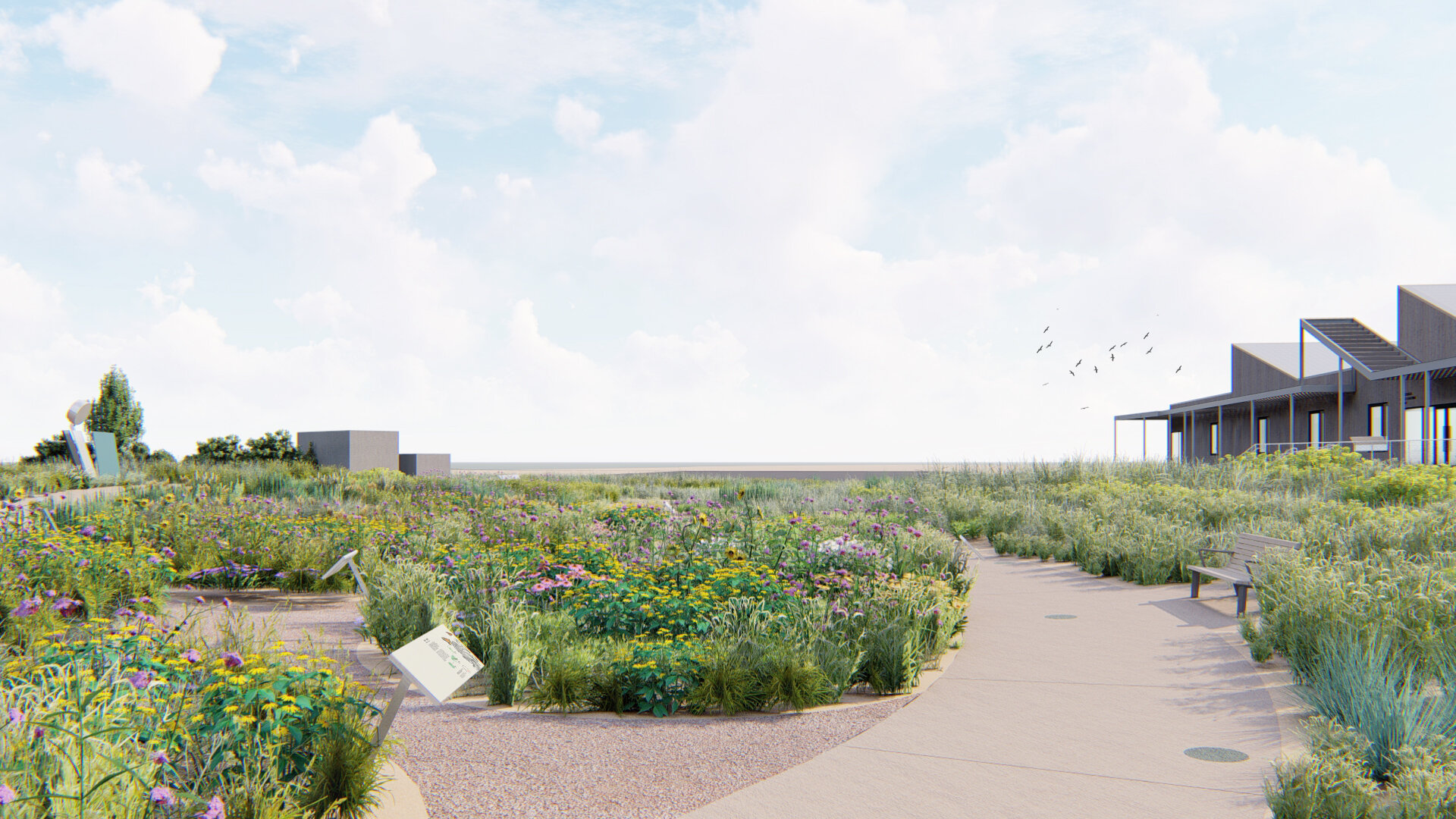
Grades 9-12
Bay Studies (Grades 9-12)
Long Island’s bays provide landscapes for recreation, wildlife conservation, and aquaculture. Join our educators to study the health of the bay by testing its waters, monitoring species through seine net fishing, and learning what we can do better to keep it in balance. Students will identify signs of a healthy ecosystem and explore mitigation techniques for human impacts.
Meet at JBENC and travel to the Boat Basin for the duration of the program
Outdoor program
Offered April- September
Mondays- Fridays: maximum 2 classes per trip
Green Building Design (Grades 9-12)
The Jones Beach Energy & Nature Center models new methods for reducing a building’s climate footprint and increasing the climate resilience of buildings and landscapes. After investigating some of these features, students will have the opportunity to try them out in a fun design challenge. Each team will be presented with a building or residence that they need to make more energy-efficient and sustainable. They will then present their work in a design “charrette” at the end of the program.
Mostly indoor program
Tuesdays- Thursdays: maximum 4 classes per trip
Mondays & Fridays: 3 classes per trip
Eco Engineers (Grades 9-12)
On Long Island, dune ecosystems are one of our greatest defenses against high wind and wave energy brought by storms. Dunes on Jones Beach bringing attention to the role of engineering and human intervention in building coastal resilience during an era of climate change. This program examines the interplay between natural processes and coastal engineering technologies and their role in the future of Long Island and Jones Beach.
Includes a walk on soft sand
Tuesdays- Thursdays: maximum 4 classes per trip
Mondays & Fridays: 3 classes per trip



